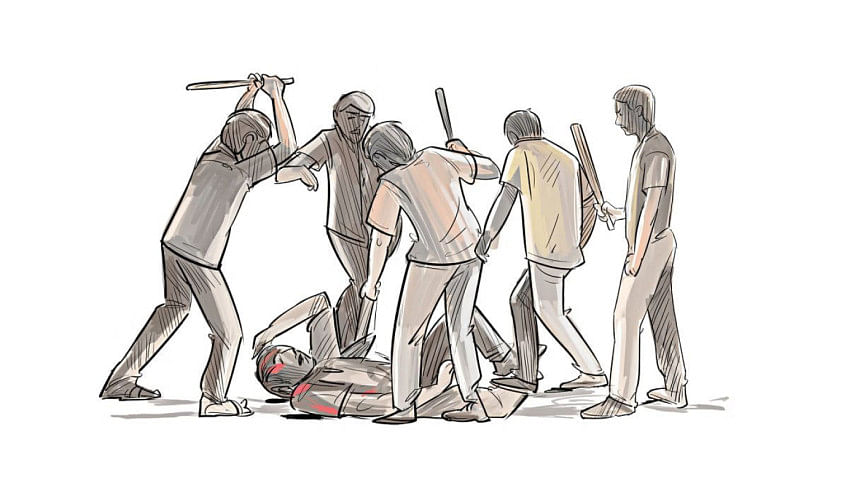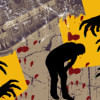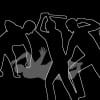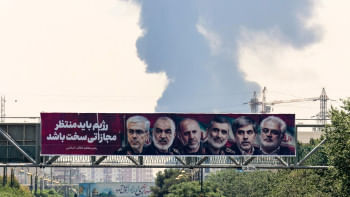When will mob violence end in Bangladesh?

Over the last nine months, something terrifying has been happening—something we can no longer ignore.
One by one, events have shown us a dark and painful truth. The state shirks away from restraining mobs. The law enforcers submit to the mob.
This is the reality we live in.
Here is what happened Sunday evening. A group of angry men appeared at former election chief KM Nurul Huda's doorstep. They did not care about his rights. The mob dragged him out in front of the family. They put a garland of shoes around your neck, slapped him with those same shoes, and threw eggs at him while police officers stood nearby—watching silently, doing nothing.
Sure, it was the person many blamed for the controversial election of 2018, which opposition parties dub as 'midnight election' since ballot boxes were allegedly stuffed on the eve of the election.
As the chief election commissioner, Nurul Huda cannot deny responsibility for his acquiescence, if nothing else. But even then—he has rights. And there is such a thing as due process.
It was not justice. It was humiliation. It was revenge. And it was done in public, on camera, with the police as silent spectators.
Let that sink in.
This is not the first time we've seen mobs in action. Since August last year, they have set fire to homes in various districts, harassed people, beaten women in public, and vandalised shrines.
Each time, the state said little. The message was clear. If you're angry enough, you can take the law into your own hands.
Until now.
Sunday night's incident finally forced the government to speak. The home adviser said, "Mob justice is unacceptable."
But that raises a question: Where was this voice before?
Where was the government when mobs were already burning, beating, and humiliating people?
An adviser's job is not to make a statement after someone gets attacked. Their job is to stop it from happening in the first place.
Our constitution is clear. Article 35 says: "No person shall be subjected to torture or to cruel, inhuman or degrading punishment."
Yet that is exactly what happened to Nurul Huda.
Even if Huda is guilty of wrongdoing, the only proper place to prove that is in a court of law—not at the hands of a mob, not on the streets, in front of silent police officers.
Let us be clear. The government failed. But the other political parties cannot pretend to be innocent either.
According to The Daily Star, the man who struck Huda with a shoe is a ward-level leader of the Swechchhasebak Dal, the BNP's volunteer wing.
This is deeply shameful.
For the last nine months, the BNP has claimed to be fighting for democracy, for justice, for a better future. But this one act has destroyed that image in the eyes of many.
It is not enough for BNP leaders to say, "BNP does not believe in mobs." They must prove it. They must take action.
It is not enough to just say, "If any party member is found guilty, we will take action." It has to be proven.
Silence or inaction at this point does not mean defending the party but defending violence.
Why did the government respond only after the videos went viral?
Why is it that the law only works after Facebook sees something? Is this how justice works now?
It should also be clear that this instance of mob violence was not something that happened at the head of the moment. It was planned, organized, and recorded. It happened in front of the police. And no one was afraid. That's what makes it terrifying.
This is the government's moment to show what it truly stands for and bring everyone of those people to face the law. It has to stop mob rule.

 For all latest news, follow The Daily Star's Google News channel.
For all latest news, follow The Daily Star's Google News channel. 








Comments